Invited speakers
Andreas F. Kelletat & Aleksey Tashinskiy
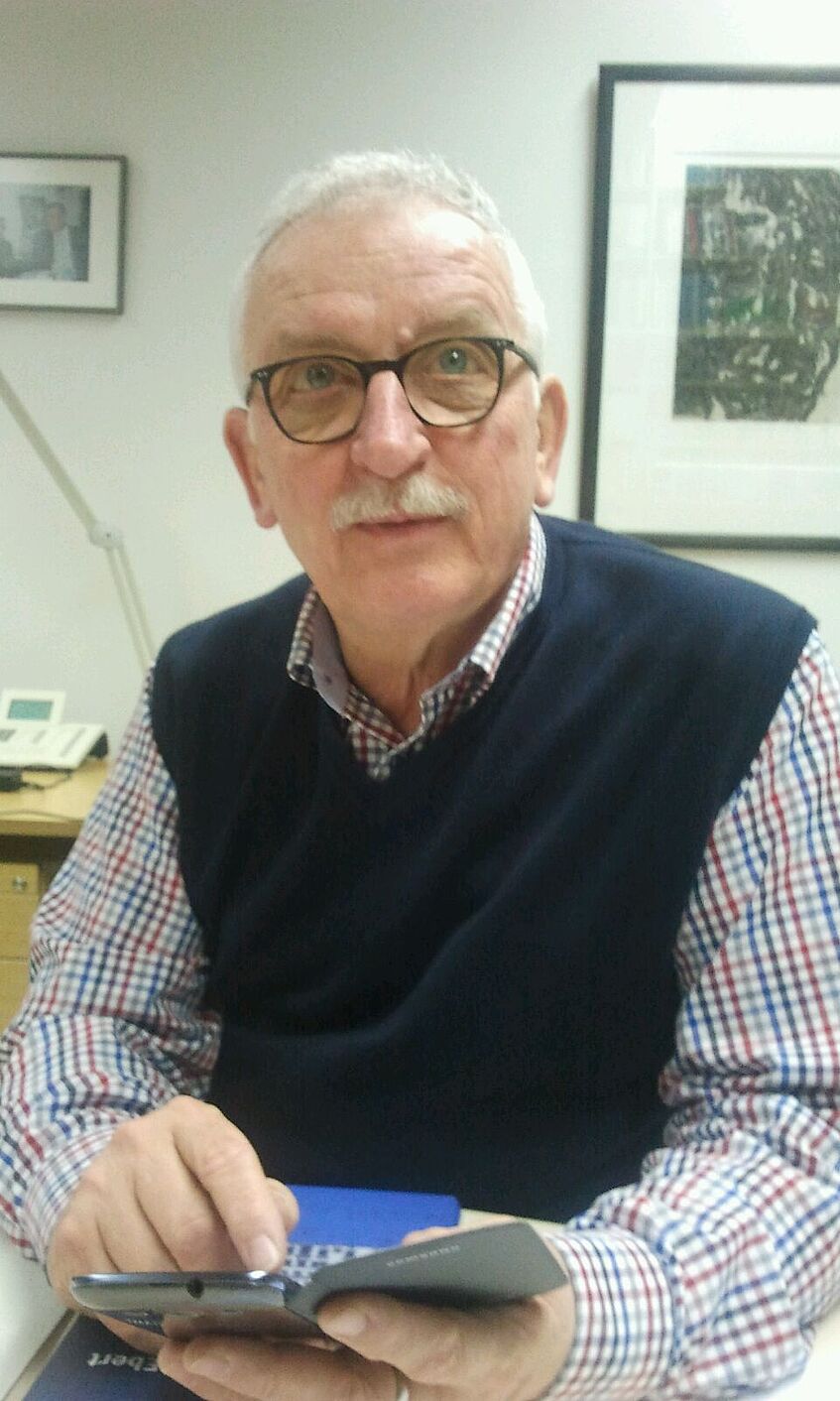
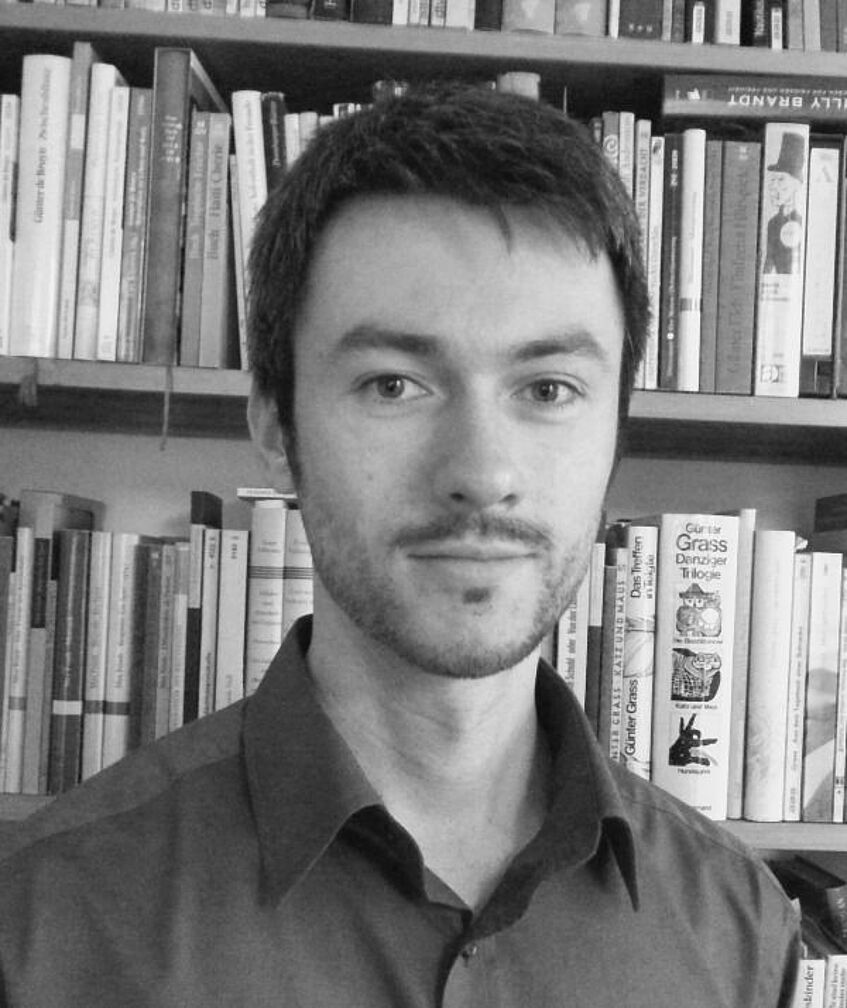
Andreas F. Kelletat & Aleksey Tashinskiy
CVs
Andreas F. Kelletat: Born 1954 in Hamburg. Studied German, Eastern European History and Scandinavian Studies in Cologne. Has been working in the academic education of translators and interpreters since 1984, first as DAAD lecturer and professor in Vaasa (Finland), since 1993 at the Intercultural German Studies department of the Johannes Gutenberg University Mainz in Germersheim. Editor of the Germersheimer Übersetzerlexikon.
Aleksey Tashinskiy: Born 1984 in Tashkent, where he studied medicine. In 2012, he completed his second degree as a translator and conference interpreter with the working languages Russian, German and English. He received his doctorate in 2018 from the University of Mainz/Germersheim and has since been teaching at the Department of Translation, Linguistics and Cultural Studies at the University of Mainz, Germersheim and more recently at the University of Leipzig at the IALT. He is co-editor of the Germersheimer Übersetzerlexikon.
Lieven D'hulst
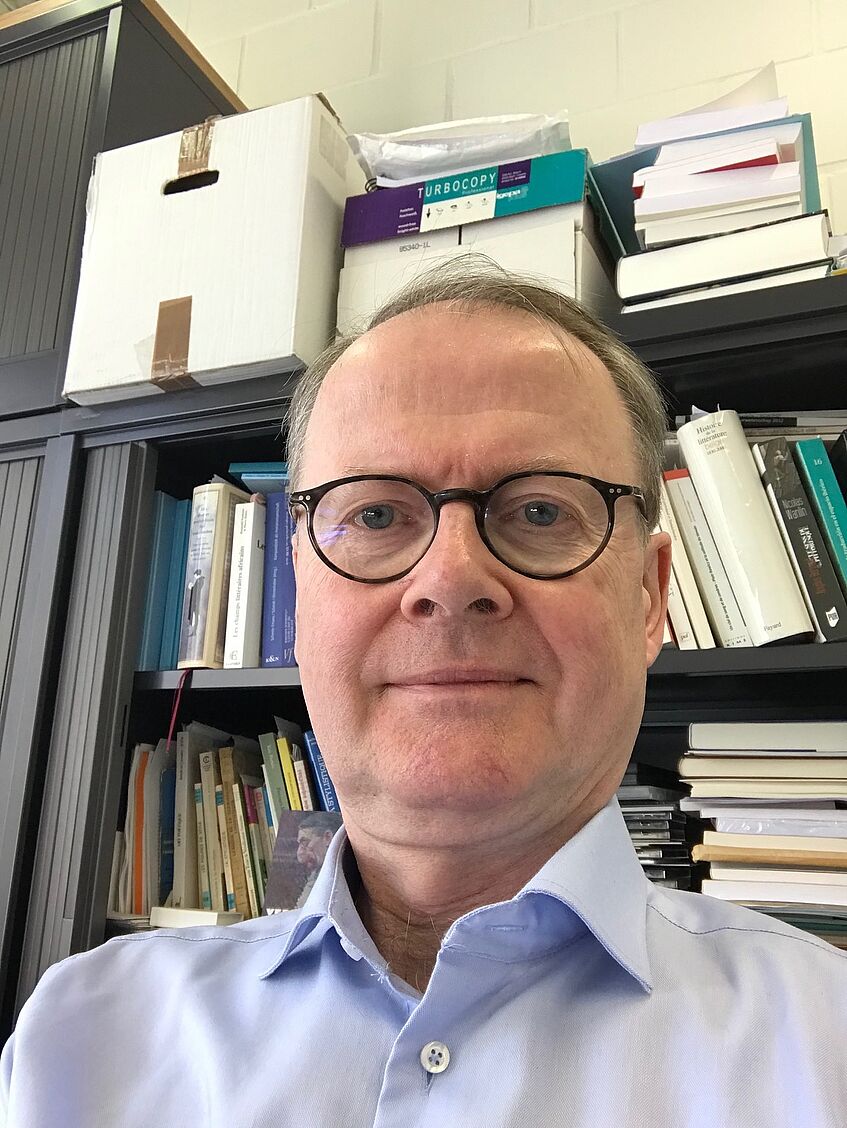
Lieven D'hulst
A history of modern translation studies
CV
Lieven D’hulst (30/10/1954) holds a PhD in Romance Philology (University of Namur and KU Leuven, Belgium, 1982) and is full professor since 2003 at KU Leuven and at KU Leuven campus Kulak.
He was trained in French and Comparative literature as well as in Translation Studies at the universities of Namur and Leuven and is actually teaching and doing research in the following domains:
– Francophone literatures of the 19th and 20th centuries, with a focus on Belgium and the Caribbean Islands
– History of translation: theories and applications to Belgium and France (19th-21st century)
– Theory and History of intercultural transfer (including migration studies)
He is the author and editor of some 30 volumes in the domains of translation history and Francophone literature and of approx. 200 articles, book chapters and reviews in the same domains. Among his recent book publications:
– L. D’hulst. Essais d’histoire de la traduction. Avatars de Janus. Paris: Classiques Garnier, 2014.
– L. D’hulst, ed. Literature and Globalism = Special Issue Canadian Review of Comparative Literature, 43:3 (2016)
– L. D’hulst, M. Schreiber & C. O’Sullivan, eds. Politics, Policy and Power in Translation History. Berlin: Frank & Timme, 2016.
– M. Schreiber & L. D’hulst, eds. Translation policies = Special issue of Parallèles. Genève: Université de Genève, 2017.
– R. Meylaerts, L. D'hulst & T. Verschaffel, eds. Cultural mediation in Europe. Leuven: Leuven University Press, 2017.
– L. D’hulst & Y. Gambier, eds. A history of modern translation knowledge: sources, concepts, effects. Amsterdam-Philadelphia: John Benjamins, 2018.
He is a member of the editorial board of several international journals in translation studies, including Target. International Journal of Translation Studies and is the co-director of the series “Traductologie” at Artois-Presses-Université (France). Since 2013 he is the head of the Research Group “Translation and Intercultural Transfer” at his university. He is also a former Bureau-member of the International Comparative Literature Association and an elected member of the Academia Europaea.
Irene Weber-Henking
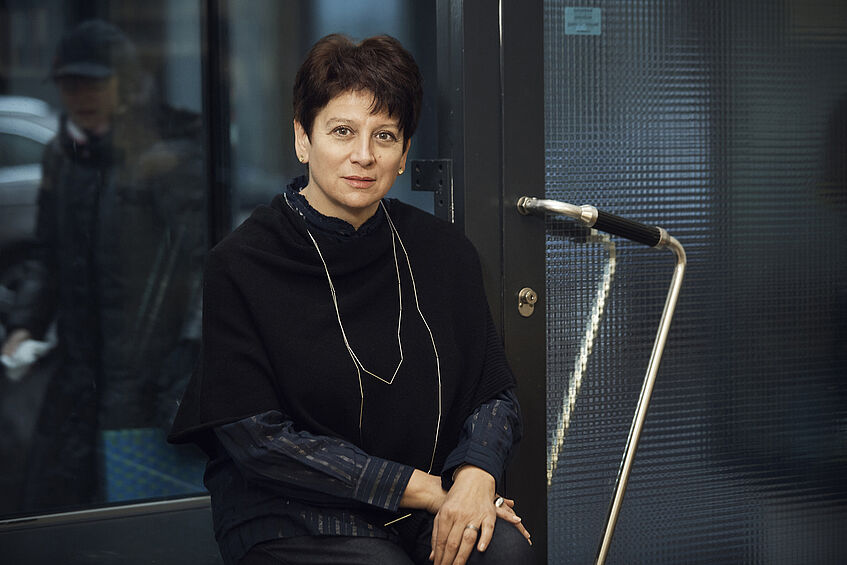
@Maurice Haas
Irene Weber-Henking
Abstract
"The role of institutions in the history of translation. The example of Switzerland".
Irene Weber Henking, Université de Lausanne, Centre de traduction littéraire de Lausanne
Literary translation in Switzerland can look back on a long, absolutely unexplored history and in this sense has exemplary value for (almost) the whole of Europe. There is largely no systematic exploration of this literary field, except in the French-speaking world, where a history of translations into French has been published in 2019 that ranges from the 15th to the 20th century (Histoire des traductions en langue française, Verdier),In Switzerland, a few case studies give an insight into certain periods, into the history of the translations of an author/work or the poetics of a translator by means of a mostly well-defined corpus. More and more, and rightly so, recent research projects are also focusing on institutional actors. The lecture intends to outline the development of translation in Switzerland in the second half of the 20th century on the basis of the history(s) of selected institutions and decisions at the political level (Pro Helvetia, ch series; cultural message of the Federal Office of Culture), and at the same time present methodological considerations for discussion.In the discussion with the participants, the theoretical framework of an investigation of institutional actors in the field of translation history will be discussed in order to explain the phenomena of multi-perspectivity and dissymmetry frequently encountered in cultural contact and literature transfer. To what extent can theoretical approaches from comparative literature, transfer theory and Histoire Croisée be used?
CV
Irene Weber Henking, Professor of Translation Studies at the University of Lausanne (Switzerland), Director of the Centre de traduction littéraire and President of the Prix lémanique de la traduction. Founder and director of a special MA-programme for literary translation in German, French, Italian, English, Spanish, Russian, Hindi, Urdu, Latin and Ancient Greek.
Editor in charge of various publication series such as "Cahiers du CTL", "Poésie bilingue" and "Prix lémanique de la traduction" and author of numerous publications in the fields of the history of translation in Switzerland, the analysis and theory of literary translation since the 19th century.
contact: www.unil.ch/ctl, Irene.WeberHenking@unil.ch
Małgorzata Tryuk (Warsaw)
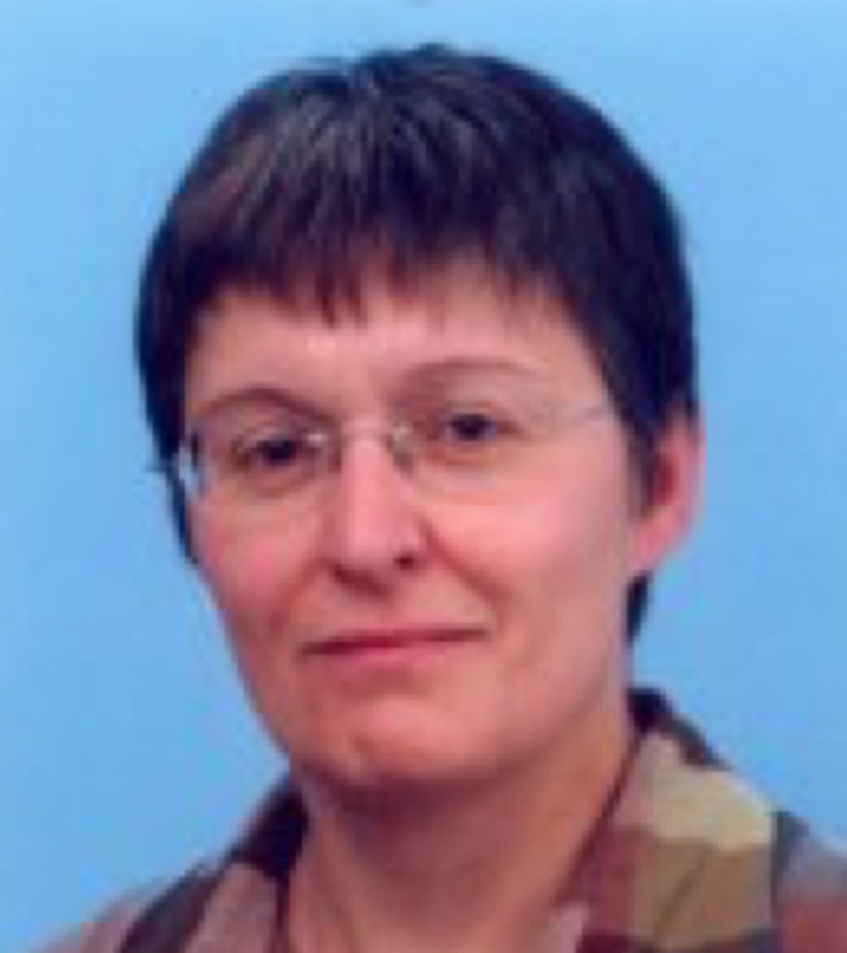
Małgorzata Tryuk (Warsaw)
Abstract
Translation and History. History and Translation
The role of autobiographical, archival and documentary materials
In translation and interpreting studies, autobiographical, archival and documentary materials can be discussed from two distinct viewpoints: that of the history of translation in a particular place and time and that of the history of this particular event in which translators or interpreters were active participants. On the basis of memoirs and archival documents from the International Brigades during the Civil War in Spain in the years 1936-1939, I will discuss two series of questions. Firstly, I will investigate what does the history of that particular time teach us and how does this knowledge contribute to the development of translation studies. The answers to this question will shed light to the issues of cross-linguistic and cross-cultural communication in the InterBrigades. Secondly I will discuss the role of translation studies for the development of the history of culture in this particular place and time.
In my presentation, I will to use the conceptual tools of entangled history (histoire croisée) which can help to shed light on transnational orientation given to translation and interpreting under various interdisciplinary perspectives
CV
Małgorzata Tryuk is Full Professor of Translation and Interpreting Studies at the Institute of Applied Linguistics, University of Warsaw, Poland; she is head of Doctoral Studies at the Faculty of Applied Linguistics, head of the Department of Interpreting Studies and Audiovisual Translation and local Coordinator of the EMCI Postgraduate Program at the Institute of Applied Linguistics, University of Warsaw. She studied Translation and Interpreting at the Higher School of Foreign Languages and at the Institute of Applied Linguistics, University of Warsaw from 1971 to 1976. She took her PhD in Applied Linguistics in 1984 at the same university and the habilitation in Interpreting Studies at the “Adam Mickiewicz University” in Poznan in 2004.
Her principal areas of investigation are Interpreting Studies and History of Translation and Interpreting. She is editor and author of books, papers and chapters in Polish, French and English on terminology, translation and interpreting in public services, conference interpreting and translating. In 2015, she published the book On Ethics and Interpreters at Peter Lang, Frankfurt. She was visiting professor at the Faculty of Translation Studies, Cultural Studies and Linguistics. at the Johannes Gutenberg-Universität Mainz Germersheim in 2011.
Stephan Kurz & Matthias Schlögl
Stephan Kurz & Matthias Schlögl
Abstract
Stephan Kurz and Matthias Schlögl will give insight into their work on the large scale research project Mapping historical networks: Building the new Austrian Prosopographical | Biographical Information System (APIS) and the Digital Humanities methods that the project (and others) make use of.
CV
Stephan Kurz is a research associate in the Cultural Heritage Research Unit at the Austrian Academy of Sciences where he manages technical and scientific aspects of the Institute’s digital humanities projects.
Matthias Schlögl works at the Austrian Centre for Digital Humanities at the Austrian Academy of Sciences where he is currently working on the APIS project.
Sylvia Asmus
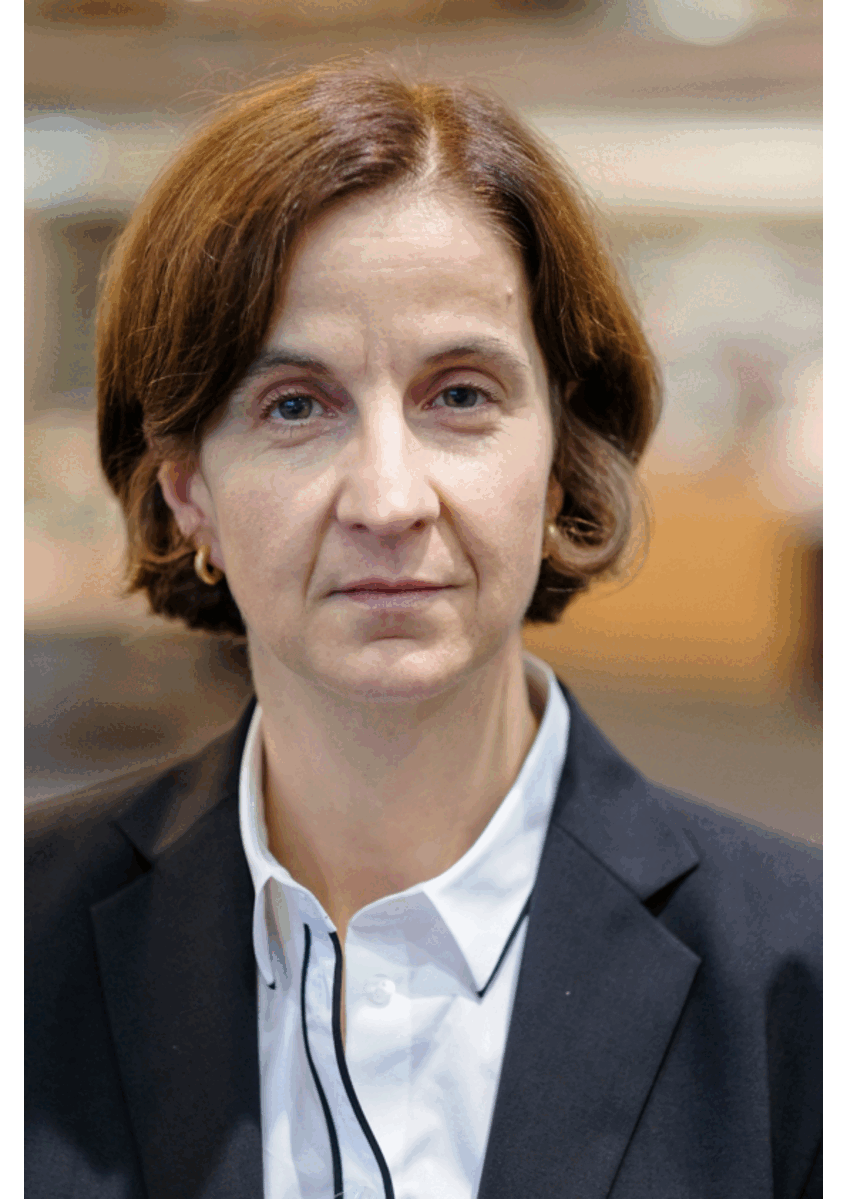
Sylvia Asmus
Exil ausstellen – virtuelle und physische Ausstellungen des Deutschen Exilarchivs 1933-1945.
CV
Sylvia Asmus, Dr. phil., Studium der Germanistik, Kunstgeschichte, Kunstpädagogik in Frankfurt a.M., Studium der Bibliothekswissenschaft in Berlin, 2010, Promotion. Seit 2011 Leiterin des Deutschen Exilarchivs 1933–1945 und des Ausstellungsbereichs der Deutschen Nationalbibliothek in Frankfurt a.M., in dieser Zuständigkeit verantwortlich für Publikationen und Ausstellungen zu Themen des Exils; Ausstellungen (in Auswahl): Exil. Erfahrung und Zeugnis. Dauerausstellung des Deutschen Exilarchivs 1933–1945 der Deutschen Nationalbibliothek, 2018; »... mehr vorwärts als rückwärts schauen ...« - Das deutschsprachige Exil in Brasilien 1933–1945. Ausstellung und Begleitbuch in Kooperation mit Marlen Eckl 2013; Fremd bin ich den Menschen dort. In Kooperation mit dem Deutschen Literaturarchiv Marbach, 2012; Publikationen (Auswahl): »... mehr vorwärts als rückwärts schauen ...« - Das deutschsprachige Exil in Brasilien 1933–1945. Hg. mit Marlen Eckl. Berlin 2013; So wurde ihnen die Flucht zur Heimat. Soma Morgenstern und Joseph Roth, eine Freundschaft. Hg. mit Heinz Lunzer und Victoria Lunzer-Talos, Bonn 2012. Rudolf Olden. Journalist gegen Hitler, Anwalt der Republik. Hg. mit Brita Eckert, Frankfurt a.M. 2010.
